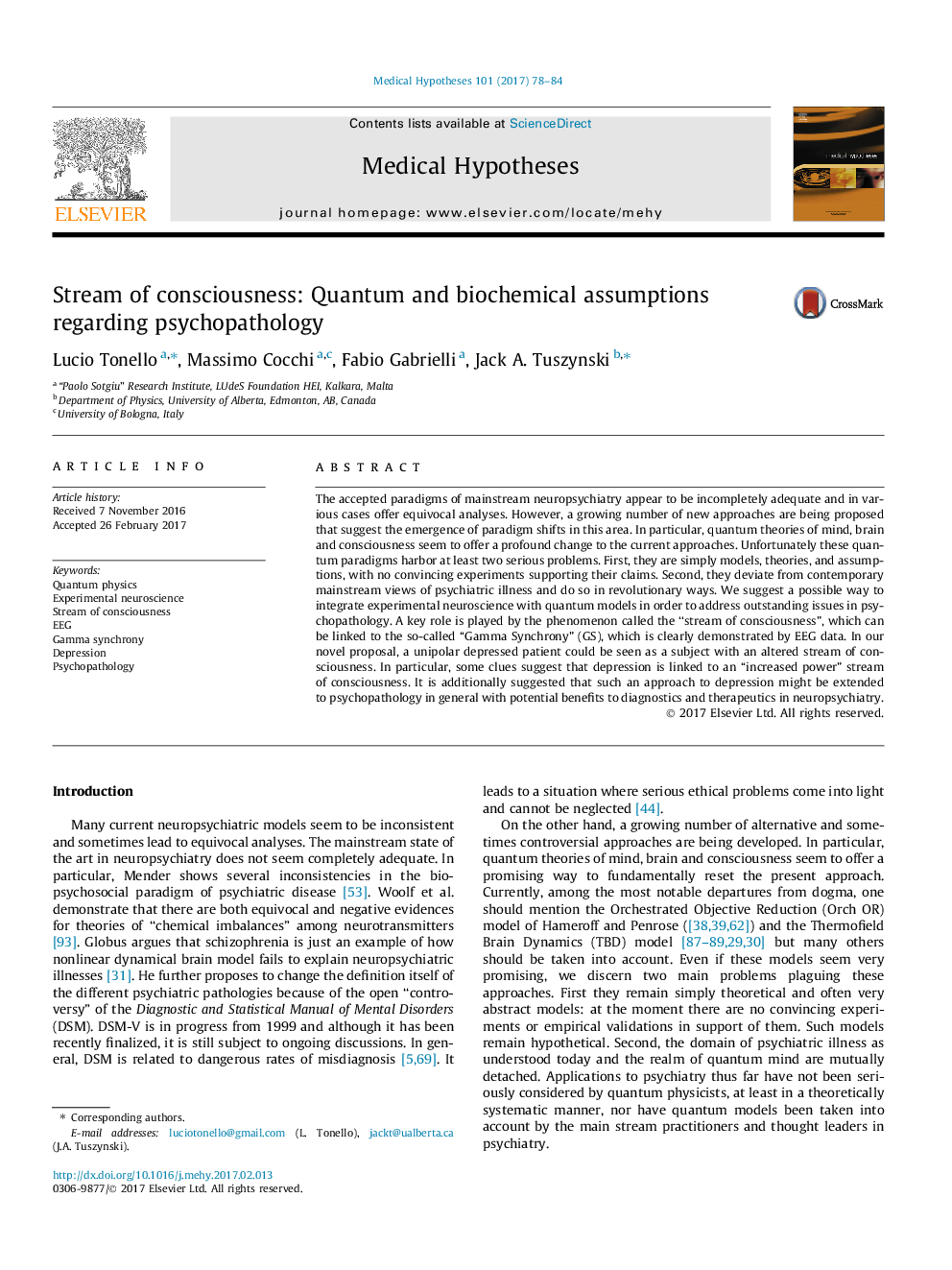| Article ID | Journal | Published Year | Pages | File Type |
|---|---|---|---|---|
| 5548582 | Medical Hypotheses | 2017 | 7 Pages |
The accepted paradigms of mainstream neuropsychiatry appear to be incompletely adequate and in various cases offer equivocal analyses. However, a growing number of new approaches are being proposed that suggest the emergence of paradigm shifts in this area. In particular, quantum theories of mind, brain and consciousness seem to offer a profound change to the current approaches. Unfortunately these quantum paradigms harbor at least two serious problems. First, they are simply models, theories, and assumptions, with no convincing experiments supporting their claims. Second, they deviate from contemporary mainstream views of psychiatric illness and do so in revolutionary ways. We suggest a possible way to integrate experimental neuroscience with quantum models in order to address outstanding issues in psychopathology. A key role is played by the phenomenon called the “stream of consciousness”, which can be linked to the so-called “Gamma Synchrony” (GS), which is clearly demonstrated by EEG data. In our novel proposal, a unipolar depressed patient could be seen as a subject with an altered stream of consciousness. In particular, some clues suggest that depression is linked to an “increased power” stream of consciousness. It is additionally suggested that such an approach to depression might be extended to psychopathology in general with potential benefits to diagnostics and therapeutics in neuropsychiatry.
